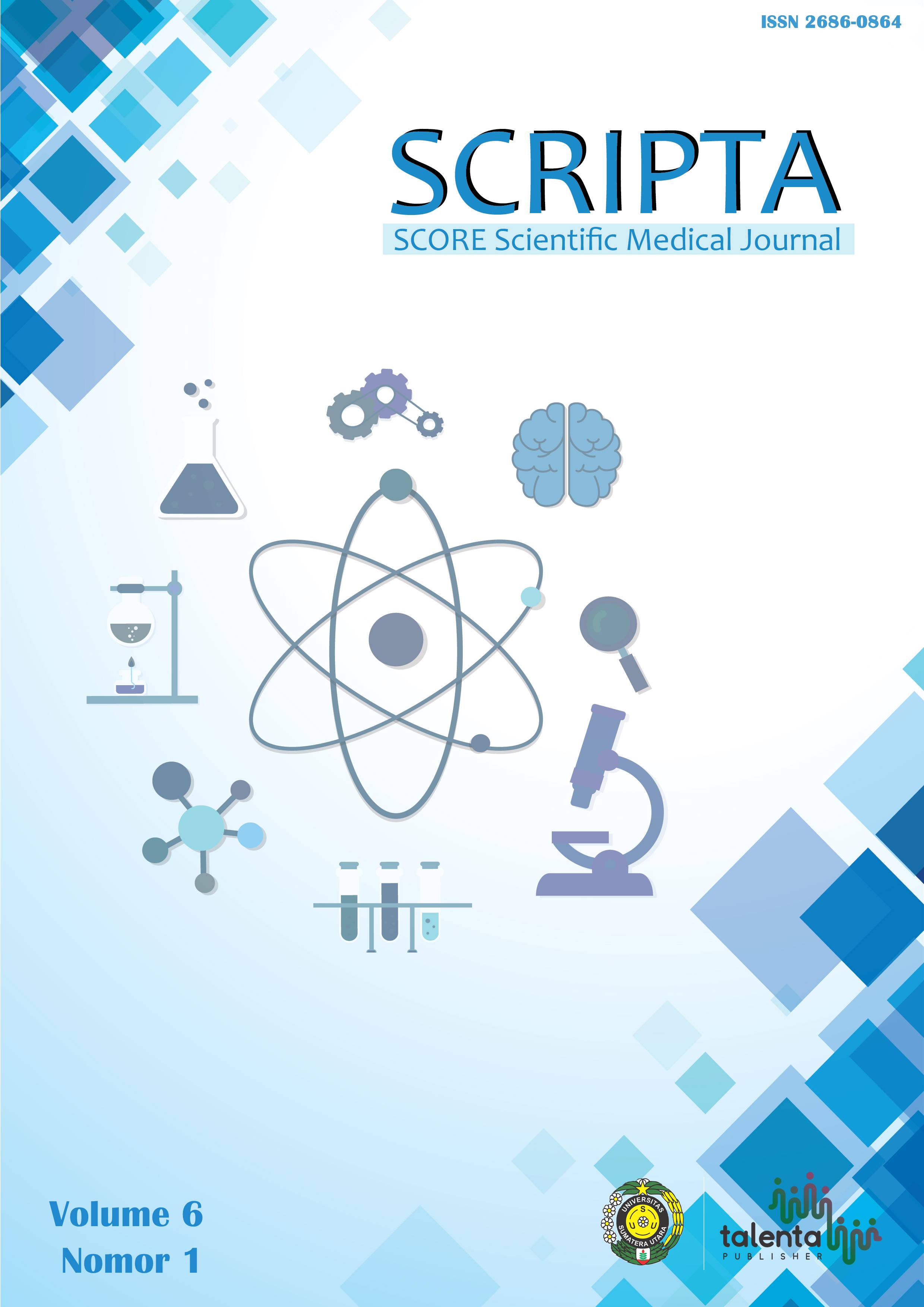Effects of the Parental Stepping Stone Triple P Program on Parental Mental Health and Disruptive Behavior in Children with Autism Spectrum Disorders: A Systematic Review and Meta-Analysis
DOI:
https://doi.org/10.32734/scripta.v6i1.15727Keywords:
Stepping Stone Triple P, Parenting Style, Child Psychiatry, Autism Spectrum Disorder, children behaviour, parents stress, Gangguan Spektrum Autisme, Gaya Pengasuhan, Perilaku anak, Stres OrangtuaAbstract
Background: Parents of children with Autism Spectrum Disorder (ASD) may face several challenges. Implementation of the Stepping Stone Triple P (SSTP) for parents proved to have an effect on reducing parents’ negative emotions and children’s disruptive behavior. However, some studies state otherwise. Objective: This study aims to assess the impact of the SSTP on parents’ negative emotions and disruptive behavior in children with ASD. Methods: Independent searching from databases conducted using a pre-registration search strategy until November 2023. The ROB 2.0 tool was used to assess the risk of bias in the results of the studies. The results were analyzed with vote counting and meta analysis. The quality of evidence was analyzed using GRADE and publication bias was checked using forest plots. Results: Vote-counting analysis from 11 studies (939 populations) show that SSTP has a positive impact. Meta-analysis was found that SSTP can reduce the level of negative emotions [MD 1.14 (95% CI -1.73 to -0.55) and I2 = 0%] and children's disruptive behavior [MD 6.31 (95% CI -7.84 to -4.78) and I2 = 68 %] and still consistent after subgroup analysis resulting in 8 study arms. The quality of the evidence was moderate and publication bias was not detected. Conclusion: Most research supports that SSTP has an impact on reducing negative emotions and disruptive behavior in children with ASD. Further research with alternative parameters is still needed. To reduce bias, a randomization method according to the protocol must be applied.
Latar Belakang: Orang tua anak dengan Autism Spectrum Disorder (ASD) mungkin menghadapi beberapa tantangan. Penerapan Stepping Stone Triple P (SSTP) pada orang tua terbukti memberikan pengaruh dalam mengurangi emosi negatif orang tua dan perilaku disruptif anak. Namun, beberapa penelitian menyatakan sebaliknya. Tujuan: Penelitian ini bertujuan untuk menilai dampak SSTP terhadap emosi negatif orang tua dan perilaku disruptif anak penderita ASD. Metode: Peninjau secara independen mencari studi dari database menggunakan strategi pencarian pra-pendaftaran hingga November 2023. ROB 2.0 digunakan untuk menilai risiko bias hasil penelitian. Hasilnya dianalisis dengan vote counting dan meta analisis. Kualitas bukti dianalisis menggunakan GRADE dan bias publikasi diperiksa menggunakan Forest Plot. Hasil: Analisis penghitungan suara dari 11 penelitian (939 populasi) menunjukkan bahwa SSTP cenderung mengurangi emosi negatif pada orang tua yang memiliki anak ASD, perilaku mengganggu pada anak, dan disfungsi pengasuhan. Meta-analisis menemukan bahwa SSTP dapat menurunkan tingkat emosi negatif [MD 1.14 (95% CI -1.73 hingga -0.55) dan I2 = 0%], dan perilaku mengganggu anak [MD 6.31 (95% CI -7.84 hingga -4.78) dan I2 = 68 %] dan masih konsisten setelah analisis sub kelompok menghasilkan 8 kelompok penelitian. Kualitas buktinya moderat dan bias publikasi tidak terdeteksi. Kesimpulan: Sebagian besar penelitian mendukung bahwa SSTP berdampak pada pengurangan emosi negatif dan perilaku mengganggu pada anak ASD. Penelitian lebih lanjut dengan parameter alternatif masih diperlukan. Untuk mengurangi bias, metode pengacakan sesuai protokol harus diterapkan.
Downloads
Downloads
Published
How to Cite
Issue
Section
License
Copyright (c) 2024 Janveri Balige Simanjuntak, Erin Tasya Sinaga, Kelvin Wahana Anugrah Manurung

This work is licensed under a Creative Commons Attribution-NonCommercial 4.0 International License.
Authors who publish with SCRIPTA SCORE Scientific Medical Journal agree to the following terms:
- Authors retain copyright and grant SCRIPTA SCORE Scientific Medical Journal right of first publication with the work simultaneously licensed under a Creative Commons Attribution-NonCommercial License that allows others to remix, adapt, build upon the work non-commercially with an acknowledgment of the work’s authorship and initial publication in SCRIPTA SCORE Scientific Medical Journal.
- Authors are permitted to copy and redistribute the journal's published version of the work non-commercially (e.g., post it to an institutional repository or publish it in a book), with an acknowledgment of its initial publication in SCRIPTA SCORE Scientific Medical Journal.














